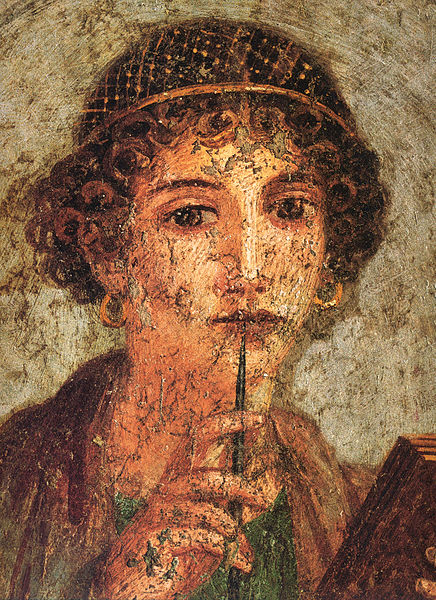
Our Mission
To learn to read Latin is to gain power: the power to understand better the workings of language itself; the power to engage — directly — dynamic, challenging, beautiful, influential works of art and sources of history spanning millennia. For over two thousand years — from the late third century bce until the rise of European nationalist movements in the eighteenth century — Latin flourished as a world language, an incomparable medium of art, diplomacy, and science throughout Europe, the Americas, and beyond. In this course you will acquire a basic fluency with Latin, including its vocabulary and grammar alongside techniques for reading and translation. Since all languages are conditioned by the cultures that produce them (and condition those cultures in turn) we will learn about the Romans and their linguistic heirs as we learn their language.
Our companion in this time-traveling historical adventure will be Suburani, a book whose compelling, interlocking tales begin in the spring of 64 ce. As dawn breaks over the rough-and-tumble Subura district of Rome, a young woman named Sabina calls from high in a tenement block to her aunt working in a bar below. In a few months, Rome, heart of an empire, will burn and our characters will flee: one travels west, to Arelate in Gaul, then on to a mystery in Lusitania. Another turns south, through Pompeii, where business opportunities abound, before the scene shifts to Carthage and the north coast of Africa. Others, members of a new religious cult, find their way east to Athens and Ephesus, in search of safety. And Nero, once their hunter, will soon become prey…
Orientation
This course will likely be unlike other courses you are taking this year: it is a year-long course. Haverford language courses typically meet daily but we will have four formal meetings per week — during which we will review recent encounters with Latin, discover new aspects of the language, and delve into Latin literature and culture though a medley of group readings, discussions, and other activities. We will engage in asynchronous activities on weekday(s) when we don’t meet in person. If the world complies, we will take a trip to the Penn Museum and have other amazing adventures.
To learn to read Latin is to gain power: the power to understand better the workings of language itself; the power to engage — directly — dynamic, challenging, beautiful, influential works of art and sources of history spanning millennia. For over two thousand years — from the late third century bce until the rise of European nationalist movements in the eighteenth century — Latin flourished as a world language, an incomparable medium of art, diplomacy, and science throughout Europe, the Americas, and beyond. In this course you will acquire a basic fluency with Latin, including its vocabulary and grammar alongside techniques for reading and translation. Since all languages are conditioned by the cultures that produce them (and condition those cultures in turn) we will learn about the Romans and their linguistic heirs as we learn their language.
Our companion in this time-traveling historical adventure will be Suburani, a book whose compelling, interlocking tales begin in the spring of 64 ce. As dawn breaks over the rough-and-tumble Subura district of Rome, a young woman named Sabina calls from high in a tenement block to her aunt working in a bar below. In a few months, Rome, heart of an empire, will burn and our characters will flee: one travels west, to Arelate in Gaul, then on to a mystery in Lusitania. Another turns south, through Pompeii, where business opportunities abound, before the scene shifts to Carthage and the north coast of Africa. Others, members of a new religious cult, find their way east to Athens and Ephesus, in search of safety. And Nero, once their hunter, will soon become prey…
Orientation
This course will likely be unlike other courses you are taking this year: it is a year-long course. Haverford language courses typically meet daily but we will have four formal meetings per week — during which we will review recent encounters with Latin, discover new aspects of the language, and delve into Latin literature and culture though a medley of group readings, discussions, and other activities. We will engage in asynchronous activities on weekday(s) when we don’t meet in person. If the world complies, we will take a trip to the Penn Museum and have other amazing adventures.
- მასწავლებელი: Bret Mulligan
- მასწავლებელი: Robert Santucci
